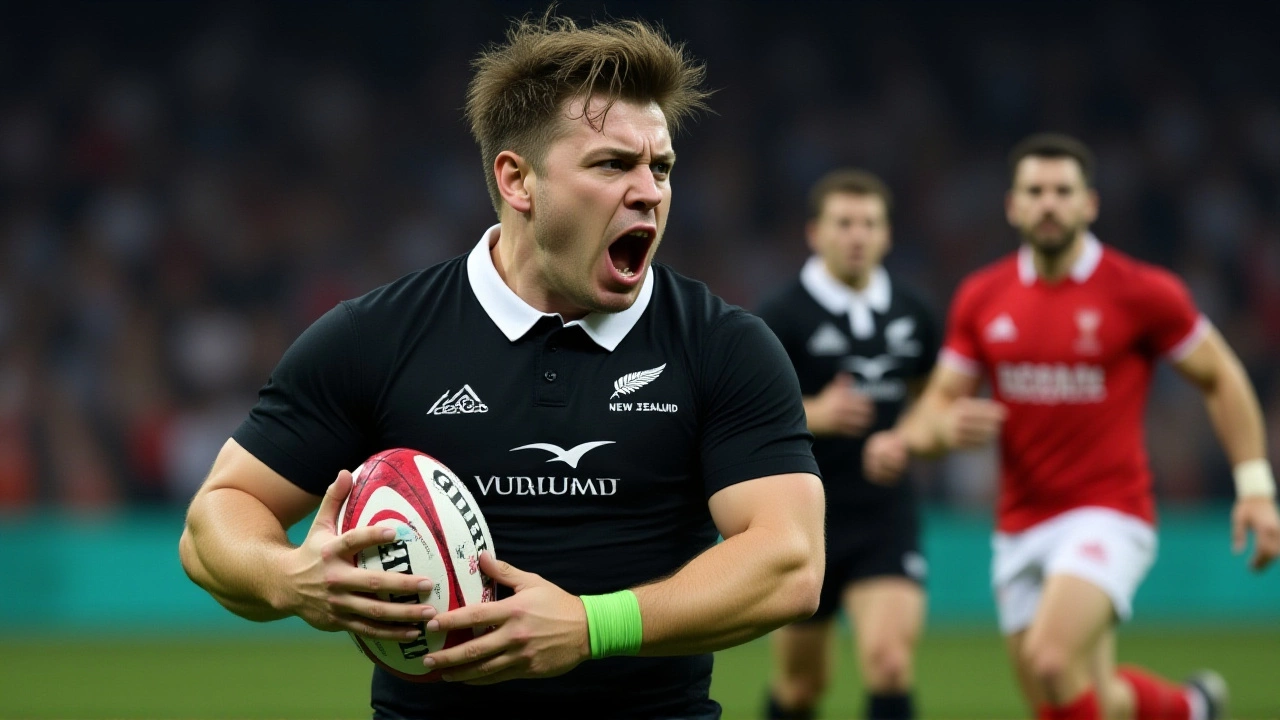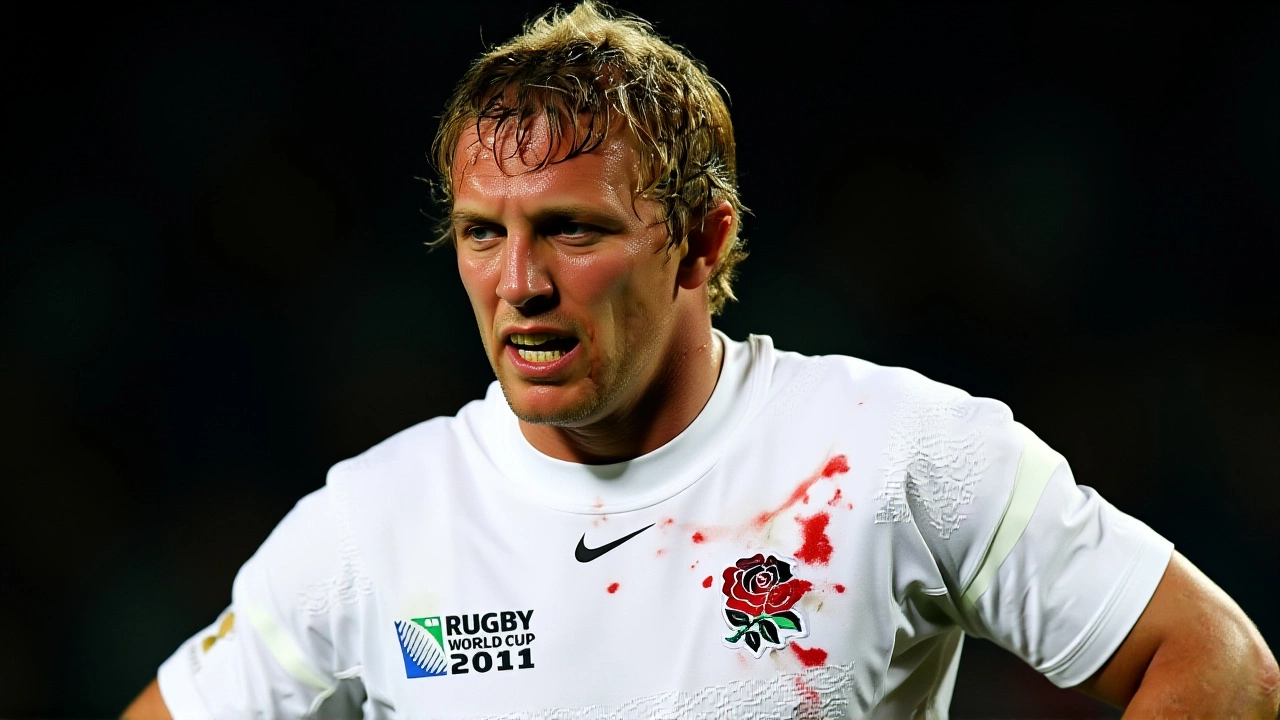Even a historic hat-trick from Tom Rogers couldn’t stop the All Blacks from delivering a brutal masterclass. On November 22, 2025, at Principality Stadium in Cardiff, Wales, New Zealand ended their 2025 Northern Tour with a 52-26 demolition of Wales — their 34th straight win over the Welsh. It wasn’t just another rout. It was a statement. And for Rogers, it was personal.
A Hat-Trick for the Ages, But Not Enough
Tom Rogers didn’t just play well. He wrote history. The Welsh fullback became the first player from Wales to score three tries in a single match against the All Blacks in their 120-year rivalry. His third try, a darting run off a quick tap penalty in the 73rd minute, sent the home crowd into delirium. NBC Sports’ broadcast transcript captured it: “Wales with signs of life and a historic hat-trick for Tom Rogers.” For a nation that’s lost 33 straight to New Zealand since 1991, it was a rare moment of pride.But here’s the thing — Wales kept giving the ball back. And the All Blacks? They don’t need second chances. They thrive on them.
The All Blacks’ Machine: Depth, Precision, and Ruthlessness
Head coach Scott Robertson didn’t just rotate his squad — he turned the entire lineup over. Of the 23 starters, only five had played in the previous match against England. This wasn’t rest. This was development. And it worked.Caleb Clarke, back from a shoulder injury suffered against Scotland, scored two tries in just 48 minutes. His speed, footwork, and timing were lethal. Meanwhile, Ruben Love — the 22-year-old fullback — was electric. He scored a try, made a key break, and even survived a charged-down kick that turned into a score for New Zealand. “Love showed he has ability,” noted RugbyPass’s post-match analysis. “His kick got charged down — but he scored a try, so he’s alright.”
And then there was Damien McKenzie. The fly-half’s goal-kicking was flawless — 8 for 8 on conversions and penalties. In any other game, that would’ve been the story. Here? It was just part of the background noise.
Seven tries to four. That’s the brutal math. The All Blacks didn’t just win — they made Wales look like they were playing in quicksand. Even when Wales scored, they couldn’t hold onto the ball. “The All Blacks are lucky Wales don’t know how to retain possession after scoring,” one analyst wrote. “They really let them off the hook.”
Wales: Glimmers of Hope in a Sea of Defeat
The Wales team was described by RugbyPass as “struggling and understrength.” And the numbers backed it up. Rhys Carre, Wales’ tighthead prop, was rated a dismal 3 out of 10 by the New Zealand Herald — missing four tackles, including one on Love’s opening try. The lineout was a mess. The scrum collapsed twice. And the midfield, led by captain Tomos Williams, looked out of sync.Yet, it wasn’t all doom. The Telegraph’s live coverage called the Welsh effort “spirited.” And Rogers’ hat-trick? That wasn’t luck. It was grit. He ran hard, took the ball into contact, and showed composure under pressure. For a squad missing key players like Josh Adams and Tomas Francis, that’s something to build on.
“There are signs of life,” said an NBC Sports commentator. “But there’s still daylight between red and all black on this evidence.”
The Bigger Picture: A Tour Done, A Future Looming
This was the final match of the Quilter Nations Series 2025Principality Stadium for both teams. For New Zealand, it capped a flawless end-of-year tour: wins over Scotland (31-18), England (40-17), and now Wales. The All Blacks didn’t just win — they tested their depth, gave minutes to fringe players, and confirmed that their pipeline is still pumping.For Wales, the tour was a reality check. They lost all three matches by an average of 32 points. Their next test? A Six Nations campaign in February 2026 — with Ireland, France, and England waiting. They’ll need more than heart. They’ll need structure. And maybe, just maybe, a new coach.
What the Stats Don’t Show
Behind the scoreboard, the real story was in the details. Caleb Clarke played just 48 minutes — and still led the team in line breaks. Will Jordan, the veteran winger, was named man of the match by RugbyPass analysts: “Brilliant and a leader as he was for the Crusaders earlier in the year.” Sevu Reece, often written off as past his prime, touched the ball 14 times and made three clean breaks. The All Blacks’ bench? They scored two tries.Meanwhile, Wales’ Rhys Carre wasn’t alone in struggle. Centre Ioan Lloyd missed three tackles. Fly-half Dan Biggar was under constant pressure. And the scrum? It was a liability. The numbers don’t lie — Wales lost 7 of 9 scrums. That’s not a bad day. That’s a system failure.
One final note: the All Blacks didn’t just win. They sent a message. To France. To South Africa. To the world. They’re not just defending champions. They’re still the standard.
Frequently Asked Questions
How significant is Tom Rogers’ hat-trick in Welsh rugby history?
Tom Rogers’ three tries against New Zealand on November 22, 2025, were the first ever scored by a Welsh player in a match against the All Blacks since their first meeting in 1905. It broke a 120-year drought and stands as the only hat-trick by a Welshman in 45 meetings. His performance was the only bright spot in a 26-point loss, and it’s now etched into Welsh rugby folklore — even if the result didn’t change.
Why did Scott Robertson make so many changes to the All Blacks team?
Head coach Scott Robertson rotated 18 players from the starting XV that beat England, using the match as a developmental tool ahead of the 2026 Rugby Championship and World Cup cycle. With key players like Ardie Savea and Beauden Barrett resting, Robertson gave minutes to fringe talents like Ruben Love and Caleb Clarke — both of whom delivered standout performances, proving New Zealand’s depth remains elite.
What does this result mean for Wales’ chances in the 2026 Six Nations?
The 52-26 loss exposed serious gaps in Wales’ set-piece execution, defensive structure, and ball retention. With Rhys Carre and Ioan Lloyd struggling, and the scrum failing under pressure, Wales will need major improvements to compete against France or Ireland. A top-four finish is possible, but only if they fix their breakdown discipline and gain a more consistent attacking rhythm.
How does this match compare to past All Blacks-Wales encounters?
This was the largest margin of victory for New Zealand over Wales since their 60-14 win in 2009. It also extended their winning streak to 34 consecutive matches — the longest in the rivalry’s history. While Wales once won 29-19 in 2008 and pushed the All Blacks close in 2017, the gap has widened dramatically since 2012, with New Zealand now averaging 41 points per game against them.
Who were the standout players for the All Blacks besides Caleb Clarke and Ruben Love?
Will Jordan, the veteran winger, was named man of the match by RugbyPass analysts for his leadership and consistent line breaks. Sevu Reece, often written off, made three clean breaks in limited minutes. Damien McKenzie’s flawless 8/8 kicking was critical, and rookie centre Rieko Ioane delivered a dominant 12-tackle performance. Together, they showed New Zealand’s depth isn’t just theoretical — it’s operational.
Did the referee’s decisions impact the outcome of the match?
There was one controversial moment when referee Holly Davidson disallowed a Welsh try in the 58th minute for a forward pass — a decision confirmed by TMO. Wales argued the ball had been passed laterally, but replays showed the pass came from a slightly forward position. While it didn’t swing the game, it added to the frustration of a Welsh side already struggling to gain momentum.

